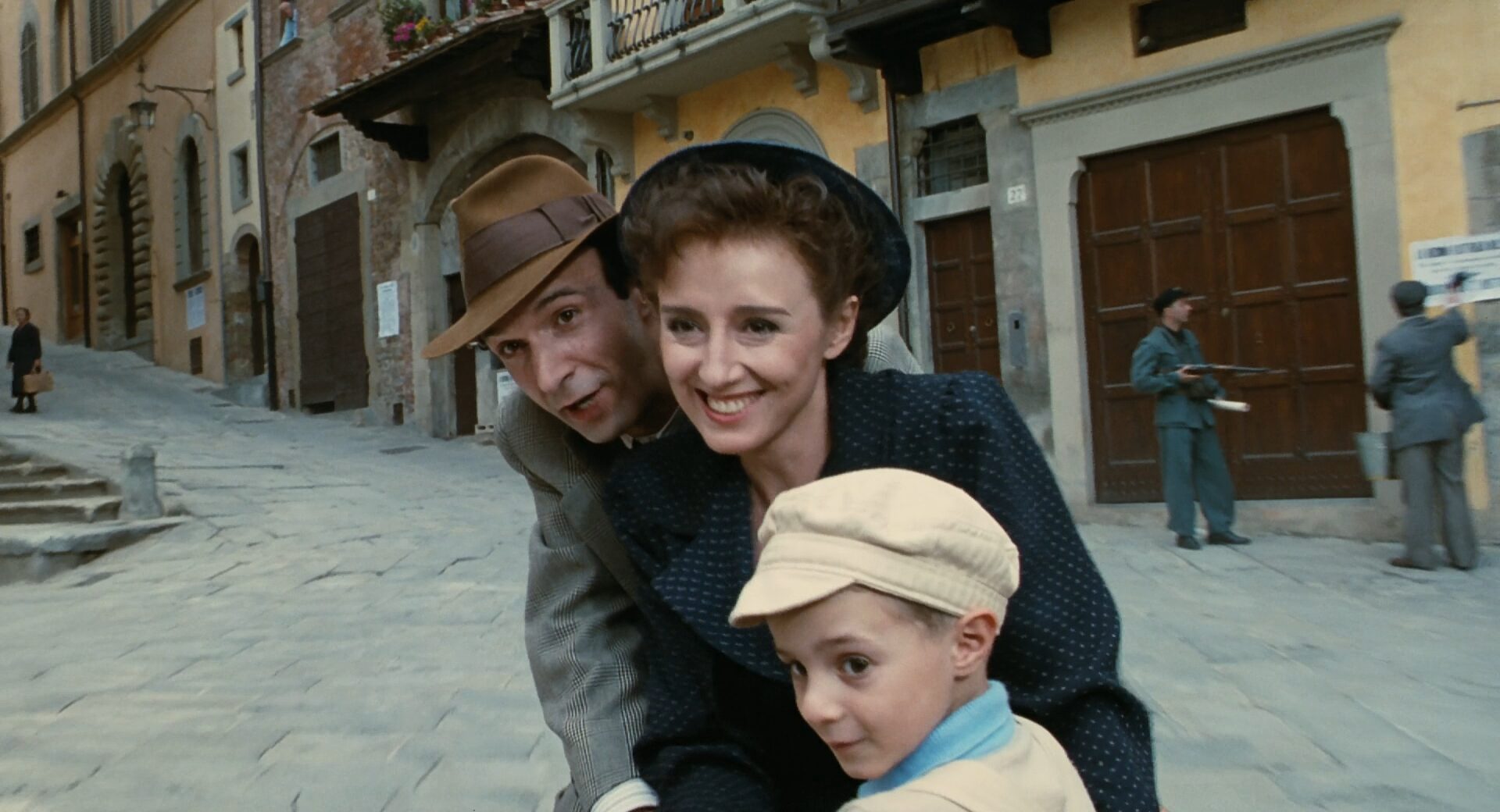
The 1990s marked a challenging but significant chapter in Italian cinema. With the passing or retirement of many of the era-defining directors of previous decades, the Italian film industry struggled to regain its former glory. This decade saw a decline in commercial success, an inability to innovate new genres, and an overall sense of improvisation in production. Despite these challenges, the decade also witnessed a few shining moments and a gradual revival in Italy’s cinematic influence, primarily due to the efforts of a new generation of directors and actors who captured the attention of both domestic and international audiences.
Early Signs of Revival: The Impact of Giuseppe Tornatore and Gabriele Salvatores
At the start of the 1990s, a ray of hope emerged with Giuseppe Tornatore’s 1988 masterpiece Nuovo Cinema Paradiso. The film, which won the Oscar for Best Foreign Language Film in 1990, captivated audiences with its nostalgic portrayal of cinema’s power to shape memories and community. Tornatore’s success gave Italian cinema a much-needed boost on the international stage, proving that Italian storytelling could still resonate globally.
Two years later, Gabriele Salvatores replicated this success with Mediterraneo (1991), a whimsical and reflective film about Italian soldiers stationed on a remote Greek island during World War II. Like Nuovo Cinema Paradiso, Mediterraneo charmed international audiences and won the 1992 Oscar for Best Foreign Language Film. These successes showcased Italian cinema’s continued appeal and cultural depth, even if they did not completely revitalize the industry.
The Rise of Gianni Amelio: A New Voice in Italian Cinema
Among the emerging directors, Gianni Amelio became a leading figure. His film Porte aperte (1989) drew critical acclaim for its introspective storytelling, and he continued his success in the 1990s with Il ladro di bambini (1992), a poignant exploration of poverty, abuse, and resilience that brought him international attention. Amelio further established his legacy with Lamerica (1994), a powerful story that examined the Albanian refugee crisis, exposing the complex dynamics between Italy and Albania. These works offered a deeply humanistic perspective, focusing on social and ethical issues that set him apart as a leading director in Italian cinema.
In the final years of the decade, Amelio’s Così ridevano (1998) won the prestigious Leone d’Oro at the Venice Film Festival, confirming his status as a key figure in the Italian film industry. His nuanced portrayals of modern societal challenges added weight to Italy’s cinematic repertoire, demonstrating that Italian cinema could still evoke profound emotional responses.
Celebrated Works of Nanni Moretti and Francesca Archibugi
Nanni Moretti, an established filmmaker since the 1970s, continued to innovate during the 1990s. His semi-autobiographical film Caro Diario (1993), which won a Best Director Award at the Cannes Film Festival, was a critical and commercial success. The film, with its blend of humor and introspection, offered a uniquely Italian perspective on life and society. Moretti’s success helped sustain Italian cinema’s reputation for introspective, character-driven storytelling.
Francesca Archibugi also gained recognition with Il grande cocomero (1993), a heartfelt exploration of psychological trauma and healing. Her films often highlighted Italy’s social issues with a delicate, compassionate touch. Archibugi’s contribution underscored the growing presence of female directors in Italian cinema, enriching the industry with fresh narratives and perspectives.
Federico Fellini’s Final Bow and Other Noteworthy Films
The early 1990s also marked the end of an era with Federico Fellini’s last film, La voce della luna (1990). Though it received mixed reviews, this work, with its surreal and whimsical portrayal of dreams and reality, allowed the legendary director to make a final statement. Roberto Faenza’s Jona che visse nella balena (1993) similarly brought attention to darker themes, presenting a haunting narrative set against the backdrop of the Holocaust.
Other important films from the decade included Mario Martone’s L’amore molesto (1995), a complex exploration of family dynamics and trauma, and Alessandro D’Alatri’s Senza pelle (1994), which revived the career of actor Kim Rossi Stuart. These films further demonstrated that Italian cinema still had a strong base in exploring intense and often uncomfortable human experiences.
The Rise of Comedy and Popular Films
Comedy made a significant return in the 1990s, often tackling modern themes in a humorous yet thoughtful manner. Massimo Troisi was celebrated for his work in Pensavo fosse amore… invece era un calesse (1991), a romantic comedy that showcased his distinctive wit and talent. Carlo Verdone also gained popularity with films like Maledetto il giorno che t’ho incontrato (1992) and Perdiamoci di vista (1994), blending humor with commentary on contemporary Italian society.
Paolo Virzì became a prominent name during this period with films like La bella vita (1994), Ferie d’agosto (1995), and Ovosodo (1997), which were both critically acclaimed and commercially successful. These films skillfully depicted the lives of ordinary Italians, often with a bittersweet touch. In contrast, Leonardo Pieraccioni captured massive box office success with Il ciclone (1996), a lighthearted romantic comedy that resonated with audiences and demonstrated Italian cinema’s enduring appeal in the realm of popular entertainment.
The International Triumph of Roberto Benigni and La vita è bella
Roberto Benigni, a Tuscan comedian, actor, and director, rose to international fame in the 1990s. Known for films like Johnny Stecchino (1991) and Il mostro (1994), Benigni achieved his most significant success with La vita è bella (1997). This poignant comedy-drama set during the Holocaust told the story of a father who uses humor to shield his son from the horrors of a concentration camp. The film’s unique blend of humor and tragedy touched audiences worldwide, and Benigni’s performance earned him the Oscar for Best Actor. The film also won Best Foreign Language Film and Best Original Score (by Nicola Piovani), solidifying Benigni’s status as an international star and marking a high point for Italian cinema in the 1990s.
Emerging Directors and the Legacy of the 1990s
The 1990s also introduced promising directors who brought new styles and narratives to Italian cinema. Silvio Soldini, known for his bittersweet, genre-defying films, made a name with works like L’aria serena dell’ovest (1990), Un’anima divisa in due (1993), and Le acrobate (1997). Mimmo Calopresti emerged as a significant talent, directing the introspective La seconda volta (1995) and establishing himself further with La parola amore esiste (1998).
The decade also saw the controversial yet innovative work of Daniele Ciprì and Franco Maresco, who transitioned from television to film with surreal, darkly comedic films like Lo zio di Brooklyn (1995), Totò che visse due volte (1998), and Noi e il Duca – quando Duke Ellington suonò a Palermo (1999). Their work, rooted in a hyperbolic and often grotesque universe, polarized critics but added a distinct flavor to Italy’s cinematic landscape.
Conclusion: A Decade of Resilience and Transformation
While the 1990s did not restore Italian cinema to its former mid-century glory, the decade was a time of resilience and transformation. Italian directors, both seasoned and emerging, managed to carve out a space on the world stage, reminding audiences of Italian cinema’s depth, humor, and capacity for storytelling. By the end of the decade, Italian cinema had not fully recovered, but it had demonstrated its ability to adapt, evolve, and continue inspiring audiences worldwide. As the 21st century approached, Italian filmmakers stood poised to build on the groundwork laid during this transitional decade.
Italian Dating & Chat for Italian Singles

Virtually meet thousands of like-minded Italian singles and connect at lightning speed; on desktop, tablet, and your beloved phone. Chat into the wee hours of the night if you’d like. Post photos, share your interests and dreams-we’ll help you look your best while you do it.Here we make it easy to meet Italian singles and feel things out first so when you do go on that first date, or meet for espresso, you can relax and be yourself. Try it now!





